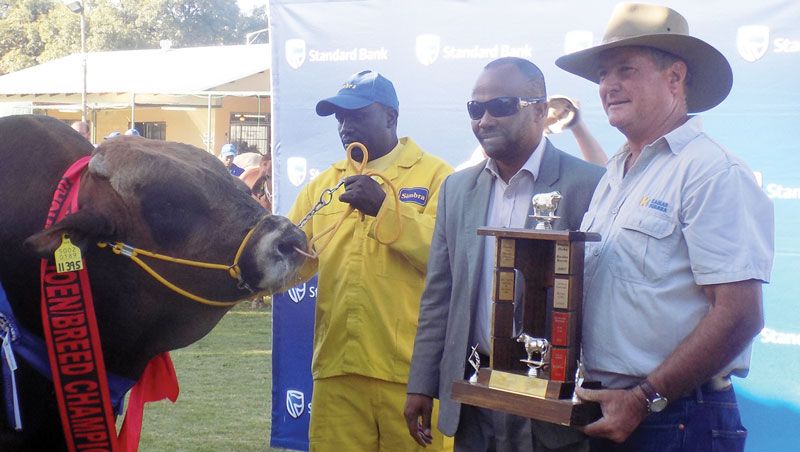
Cattle export stalemate cost N$2.3 million a day
Official figures from the Meat Board show that N$2.3 million is lost daily, based on a five-year projection, due to the current livestock export restrictions to the South African market.
The new South African veterinary restrictions that came into effect on 1 May 2014 require that livestock imports be clearly distinguished whether they are for breeding or non-breeding purposes.
Legal action had been considered by the South African Feedlot Association on the new set of requirements regarding the import of Namibian livestock to South Africa.
Chief Veterinary Officer at the Ministry of Agriculture Dr John Shoopala said that the South African market is avoiding the risk of disease due to non-discrimination between non-breeding livestock, which is sent to abattoirs and breeding stock. The latter, in turn, poses a higher risk of spreading disease. At this point, game is unspecified and is not considered a high risk.
Last year, the pervasive lack of grazing as a result of the drought, forced the Ministry of Agriculture to allow the live export of substantially more weaners on the hoof to South Africa. This happened despite the President’s Pohamba’s warning in February 2013, that live cattle exports will be restricted. But the flood of weaners to the South African market also distorted local prices. A correction of close to 30% followed this year, when the South African state veterinary services unilaterally closed the gate for live cattle exports.
Permanent Secretary in the Ministry of Trade and Industry, Malan Lindeque said in earlier media reports that the effects of the cessation of imports were not absolute.
Lindeque said the ministry would lessen its focus on live exports requiring further investment in feedlots in Namibia. South Africa currently is the only market for live exports.
Dr Shoopala said there will be a subsequent local meeting a week after the slated 25 June meeting with South African authorities.
Namibian import permits are all-inclusive taking into consideration South African veterinary services have less manpower to handle an influx of weaners from Namibia, Shoopala noted.
New Standard Operating Procedure will be initiated after a meeting was held with the Red Meat Producers Association last week.
Meat Board, Chief Executive Officer, Paul Strydom initially denied confirmation of the loss incurred per day. In a later email response to the Economist, he said that it is a crude statement and should be interpreted as such, although the statement was a Meat Board statement.










































